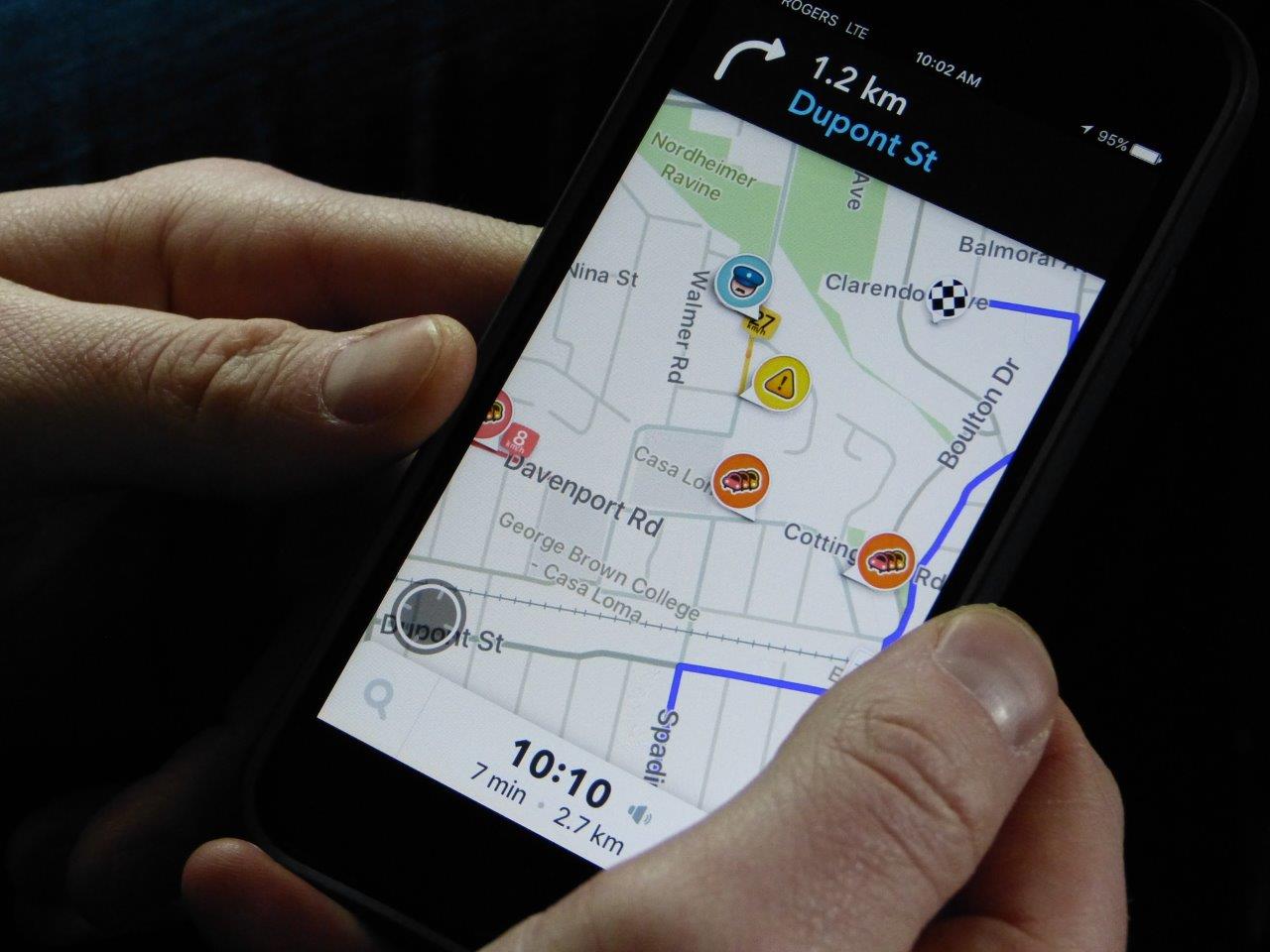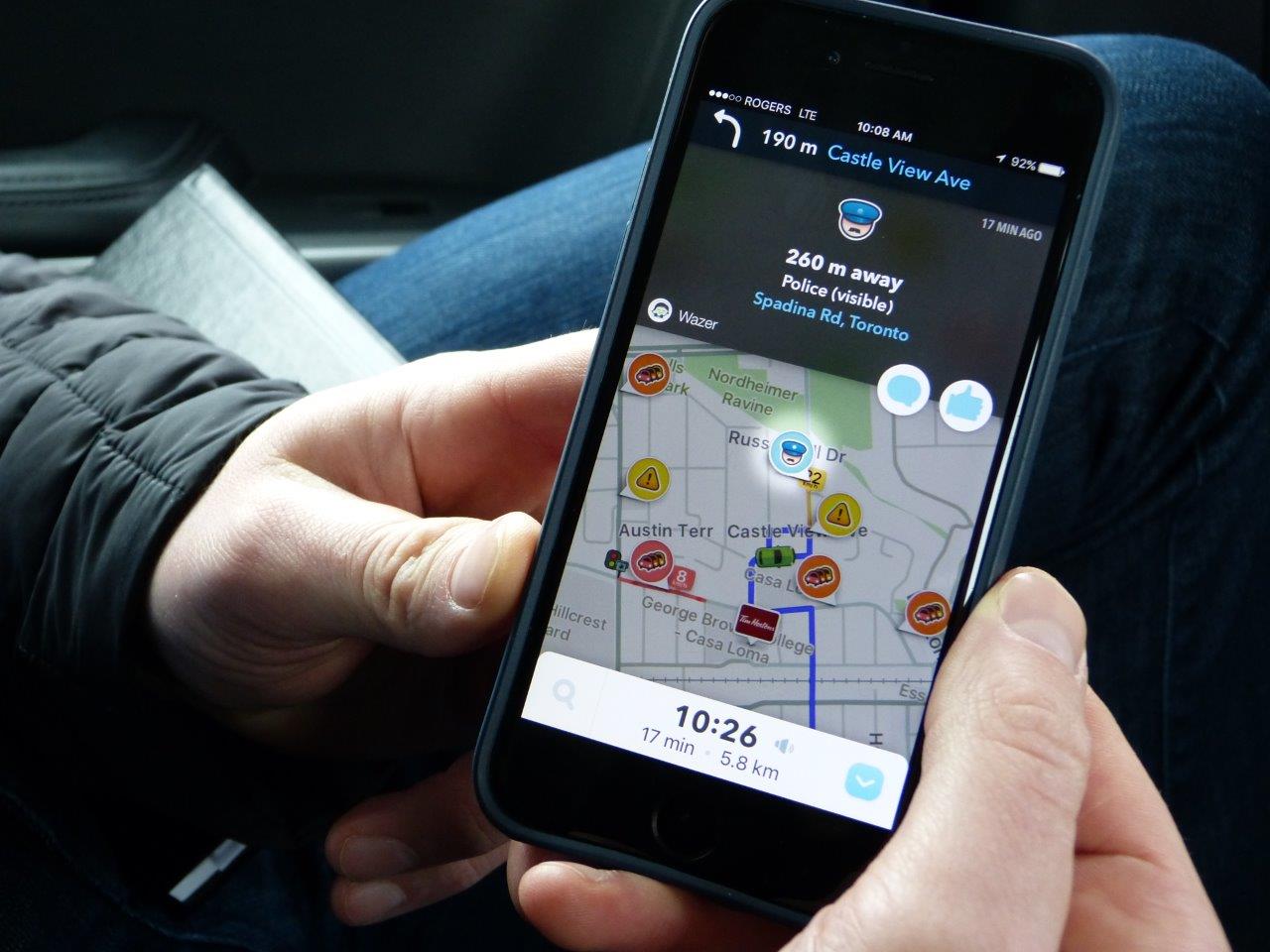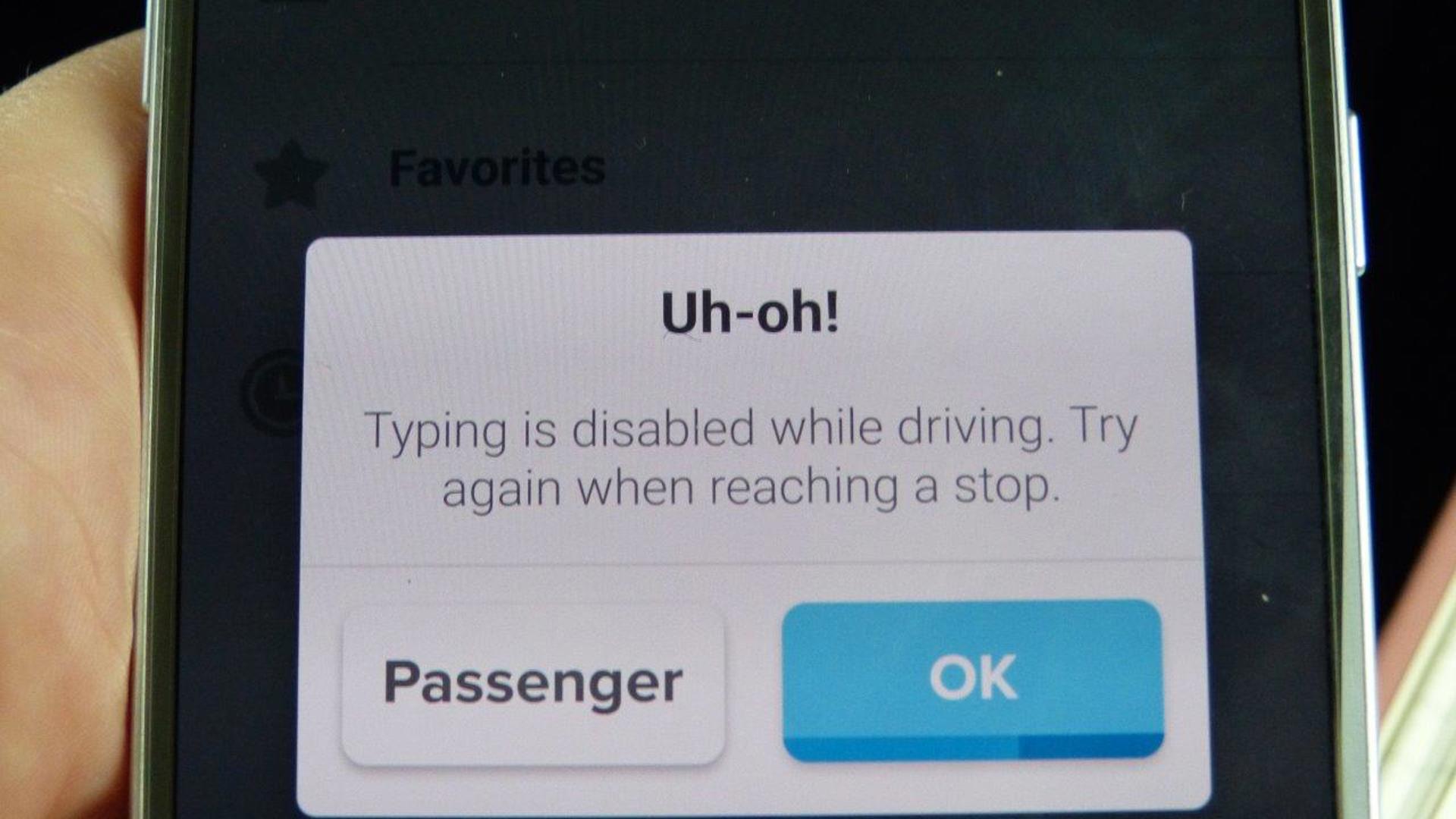By now you’ve likely heard of Waze, the app that helps commuters beat traffic by crowd-sourcing information from roughly 75 million users worldwide on the things that hold us up on the roads such as congestion, construction, and collisions.
I have a number of friends who more or less have their smartphones grafted to their bodies, and a few of them swear up and down by Waze. I’ve therefore been aware of it for some time. But for some reason, I always just assumed it wasn’t for me. I do a good job, if I do say so myself, of keeping my phone out of reach while I’m at the wheel, and Google Maps gets me around major back-ups well enough that I’ve never felt a need to go elsewhere.
However, after receiving a one-on-one demonstration of the app’s benefits from Mike Wilson, Country General Manager for Canada at Waze, I’m having second thoughts. Using it comes with some challenges, but it also has some serious benefits.
For one – and this may come as a surprise – if you’re already using Google Maps or Apple Maps then you’re already using Waze, at least in part. A small percentage of Waze’s data is supplied to both mapping services on major traffic disruptions. In fact, since Google bought Waze roughly three years ago, it’s not uncommon to see Waze-reported collisions or slow-downs reported directly onto Google Maps. Waze has also partnered with the SmartDeviceLink Consortium Inc. (SDLC) formed by Toyota and Ford so expect some integration into their phone-based navi solutions too.
If that’s all you’re looking for in your driving app experience, then you may wonder whether there’s any point in downloading Waze at all. In my time with it, I noticed some clear benefits and drawbacks:
USE WAZE IF:

- Your view on data is that more is better. The first benefit is the most obvious: Waze shows a lot more detail than your average map app. This starts at the aforementioned crashes and traffic back-ups but extends to things like nearby spots to grab your favourite coffee or burger.
It also includes notifications for police presence, a point that I found interesting – it makes it easy for users to crowd-source on things like the locations of speed traps, which is curious given that radar detectors are illegal and discussions of them on social media are generally frowned upon by police forces. However, Wilson says Waze is in active communication with the authorities and they see it as a benefit because it causes drivers to slow down further up the road from speed traps, thereby keeping the roads safer.
One point worth noting is that this entire mass of data is collected anonymously. Waze takes a minimum of information when setting up an account and your phone is never associated with a vehicle, which makes it very difficult for the data sent to be reliably connected to you.

- You could use more reminders. People who prefer to ease the load on their brains by letting devices do some of their remembering will love Waze. Similar to map apps, Waze will send a push notification when it calculates that it’s time to leave for an appointment based on current conditions, and users can aid in this by programming in home and work addresses and upcoming drives. Waze also has an intriguing backseat reminder feature: you’ve heard the stories of the parent forgetting a child in a car for hours, and Waze can flash up a reminder to check the back seat before you get out of your vehicle. It can also drop a pin for you to make it easier to find your parked car in a huge lot, and you can share drive routes with other users so that they can follow your planned route or watch your progress and know when to expect you at your destination.
- You enjoy the feeling of contributing to the greater good. The crowd-sourcing aspect of Waze is absolutely integral to its success. Toronto has 374,000 active drivers using the app – with active being defined as driving 5 kilometres or more per month – and some of those users go a step further by volunteering their time to keep the maps up to date and make routing more efficient. Waze takes care of these people as thanks by hosting meet-ups and giving them access to features in beta development among other benefits.

- You like cute things. The Waze app is very cheerful and pleasant to use. The map can be customized by a variety of factors such as flat versus 3D and forced north versus direction of travel, and users can select from a list of navigation voices. Limited-time voices are occasionally added, which in the past have included celebrities such as Stephen Colbert, Morgan Freeman, and Arnold Schwarzenegger. The car icon that appears on your screen can be any number of colours or even a race car, and the icon that represents you to other users on the map changes as you level up based on your interactions with the app. (I’m told mine is currently a baby, pacifier and all.)
DON’T USE WAZE IF:
- You’re easily distracted. The app blocks text inputs when the car is in motion, and most basic reporting can be done completely hands-free by voice, a must in places like Ontario where it’s illegal to so much as touch your phone while driving. But there’s still a lot happening on the map at any given time, and it’s constantly updating. If you’re the sort of person who fixates on a busy screen instead of on the road ahead, you may need to hand your phone off and let someone else operate Waze for you while you’re behind the wheel.

- You have an infotainment system that already supports a smartphone app. Currently, the only way to interact with Waze is to prop your phone up somehow, dashboard clips being the most common method. If you own a newer car that allows you to plug your phone in and use a smartphone app such as Android Auto or Apple CarPlay, the benefits of being able to interact directly with the screen, receive and respond to messages, and deliver commands via your car’s voice recognition system are likely to outweigh the up-sides Waze can offer, at least for now. Wilson says that since Waze is owned by Google there’s already work in progress to integrate the app into Android Auto, though that project’s completion is still some time off; the company is also in talks with Apple regarding doing the same with CarPlay, but the ownership hurdle means that step will take even longer.
Having now spent some time getting to know Waze myself, I feel I’ll use it some but not all of the time. Whenever I’m in a car that I can plug my Samsung Galaxy S7 into and access Android Auto that will still be my preference, primarily due to the safety benefits. But I’m definitely going to keep the app installed and play with it when I’m in other cars or, more likely, when I’m riding side-seat to someone else. After all, anything that lets us spend less time in traffic and more time on spirited driving is a beautiful thing.












